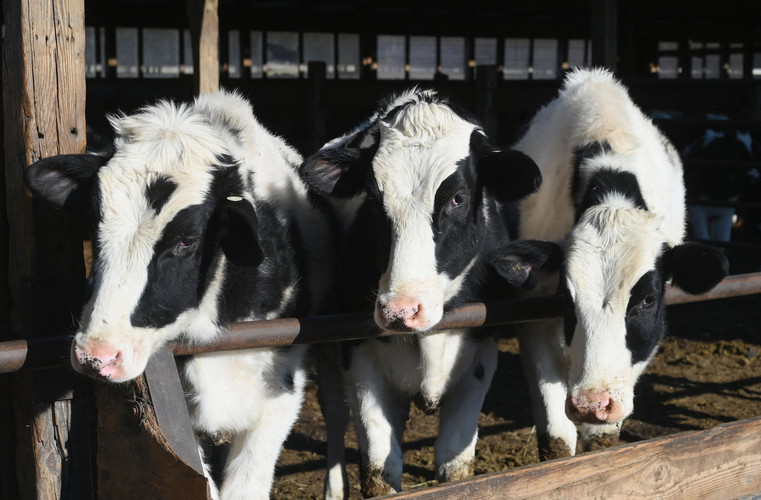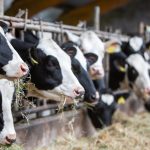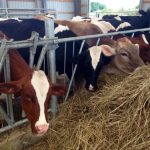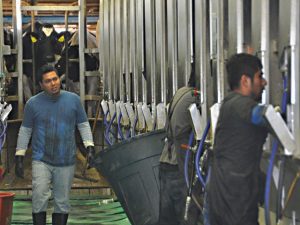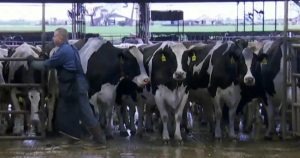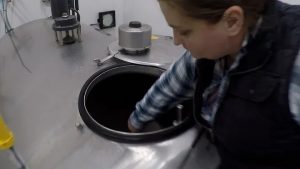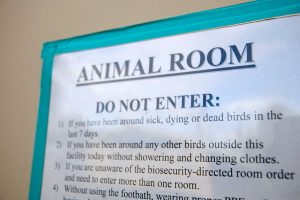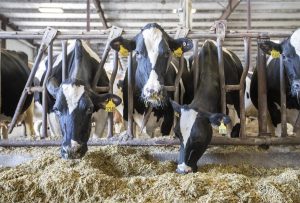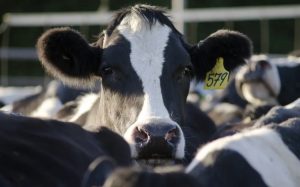
QUICK FIX
— The number of dairy herds with documented bird flu infections has risen rapidly in recent weeks. Federal officials’ reliance on individual farmers to track the spread is leaving the industry vulnerable.
— House Ag Chair G.T. Thompson (R-Pa.) tells us there’s new momentum on negotiating a farm bill, but a time frame to finalizing the bill before programs expire is unclear.
— OSHA is moving to create federal heat protections, a move advocates say could help farmworkers, who are 35 times more likely to die from heat risks.
IT’S MONDAY, JUNE 17. Welcome to Morning Agriculture! I’m your host Grace Yarrow. Send tips to gyarrow@politico.com and follow us at @Morning_Ag.
DRIVING THE DAY
BIRD FLU CHECK-IN: Reliance on individual dairy farmers to help track the spread of avian flu is leaving the federal government without the data necessary to understand and slow the virus’ spread, Meredith and David report.
The biggest challenge for the federal response, agriculture and public health officials told POLITICO, is that the more the virus spreads among dairy cows, the more opportunity it has to mutate and become easier to jump to additional humans.
The number of documented infected dairy herds in recent weeks has risen rapidly and several other states have confirmed initial infections in cows.
The challenge: Many dairy farmers are declining to test their cows, leaving the nation vulnerable to a situation in which federal officials won’t have adequate warning if the virus evolves and poses a greater risk of infection to people.
To date, 94 herds across 12 states have tested positive for bird flu, but the testing has covered a mere fraction of the nation’s nine million dairy cattle.
Mark Lyons, a senior USDA animal health official, said federal officials are “still working closely to understand the breadth” of the bird flu outbreak in the nation’s dairy herds.
Since April, more than 15,000 animal samples have been tested, with more than 4,300 under a federal order requiring dairy cow testing before animals are moved across state lines, according to USDA data.
CONGRESSIONAL POV: Sen. Tina Smith (D-Minn.) said she’s paying “a lot of attention” to potential spread between species and to humans.
“This is a very interesting and complicated situation,” Smith told MA in a brief interview, emphasizing that dairy products at the grocery store pose no health risk.
Lawmaker response: Smith said Minnesota state leaders have not identified “any need for congressional action at this point, other than for us to be paying close attention and looking for ways to make sure that the federal and state actors are working well together.”
Smith, a member of the Senate Ag Committee, created the National Animal Disease Preparedness and Response Program in the 2018 farm bill with Sen. Amy Klobuchar (D-Minn.). Smith’s office confirmed that the program would be reauthorized under Stabenow’s farm bill framework.
Communication is key: State leaders have told Smith that federal officials, including USDA, have been “good partners” in the avian influenza response.
“There have been occasions where the information flow from USDA federal to USDA at the state level could be improved,” Smith said. “USDA and CDC are working on building up their muscles for communicating across agencies in situations like this.”
ON THE HILL
FARM BILL UPDATE: House Ag Chair Thompson told MA he’s still trying to find a time to get his farm bill on the House floor this summer.
“My preference, obviously, would be the sooner the better,” Thompson said. “There’s just a lot on the agenda right now.”
He said that between passing his own farm bill out of committee in May and having two frameworks on paper from the Senate Ag leaders, there’s “a lot of good momentum” on getting a final bill done.
“Now we just need to see some text from Senate Democrats.”
Senate Ag Chair Debbie Stabenow (D-Mich.) told MA earlier last week that she wouldn’t move forward with a farm bill that has the nutrition and climate policies included in the House committee’s bill or in Senate Ag Republicans’ framework released last week.
“If you’re just focused on red lines, you are misguided. That means she’s not willing to come to the table,” Thompson said. “She needs to get with us.”
Extension talk: Stabenow said she’d be “sitting down soon” with ranking member John Boozman (R-Ark.) to find common ground on policies as the farm bill’s deadline approaches.
“I would rather get a farm bill done if we can,” Stabenow told us last week.
After the release of his framework, Boozman said now’s the time to hammer out a farm bill with Democrats or just “agree to disagree” and start working on an extension of the farm bill, which is set to expire at the end of September.
FIRST IN MA: Elsewhere on the Hill, Sen. Cory Booker (D-N.J.) is introducing a bill today that would ban the intentional adding of animal excrement to animal feed.
That targets the practice of feeding chicken excrement, dead birds and feathers to cows. Booker is hoping to curb that amid the recent bird flu outbreak raising awareness of factory farming practices that could create a risk of spreading disease between animals and to humans.
“We must put an end to unsanitary factory farming practices that prioritize profits over public health, including the feeding of poultry litter to cattle,” Booker said in a statement.
IN THE FIELD
HEAT PROTECTIONS: Last week, the Occupational Safety and Health Administration submitted a draft of a new standard to protect workers from heat-related harm while on the job to the White House’s regulatory clearinghouse, as our Nick Niedzwiadek reported.
Public health experts, worker advocates and congressional Democrats have repeatedly pressed OSHA to act quicker on issuing a federal safety standard.
According to the Labor Department, dozens of workers die annually and thousands more are injured due to extreme heat — a threat that climate change is expected to worsen as temperatures rise and hot periods stretch longer.
Agricultural workers are 35 times more likely to die from heat-related risks than workers in other industries.
There are “a number of reasons” — beyond working outdoors — that farm workers are especially vulnerable to heat risks, Jill Rosenthal, director of Public Health Policy at the Center for American Progress.
“Many farm workers are undocumented and may not be familiar with worker rights, and they may be fearful of speaking up when they feel like their health is at risk,” Rosenthal said.
In the meantime: Because the federal rulemaking process can take years, states drafting and implementing their own heat protection standards can boost protections, said Alexis Guild, vice president of strategy and programs at Farmworker Justice.
A handful of states already have heat standards for outdoor workers. She also encouraged the passage of a Democrat-led, bicameral bill that would require OSHA to put in place interim heat protections while they complete rulemaking through the Office of Information and Regulatory Affairs.
“We just certainly encourage OIRA to publish the proposed rule sooner rather than later,” Guild said. “The summer has begun. There are already heat events happening across the country. … So the time is now.”
ROW CROPS
— Ag Secretary Tom Vilsack is in Fort Collins, Colorado, today to announce a “major investment in rural Coloradan communities” with Rep. Yadira Caraveo (D-Colo.).
— A new NIH study found that the amount of infectious bird flu virus in raw milk rapidly declines with heat treatment.
With help from Meredith Lee Hill and David Lim
You can now read the most important #news on #eDairyNews #Whatsapp channels!!!
🇺🇸 eDairy News INGLÊS: https://whatsapp.com/channel/0029VaKsjzGDTkJyIN6hcP1K
